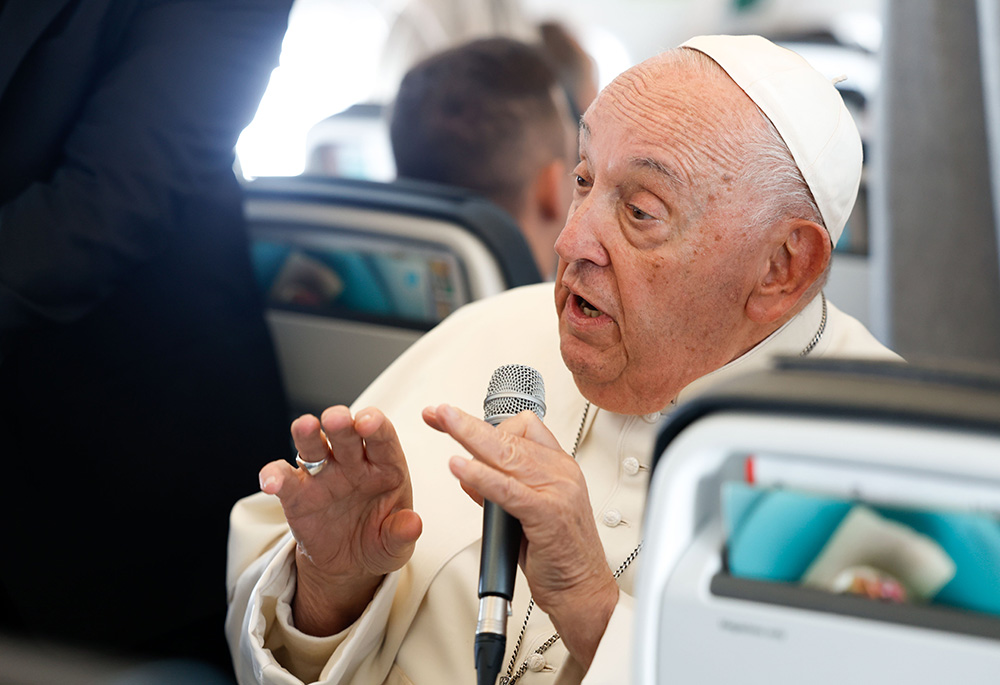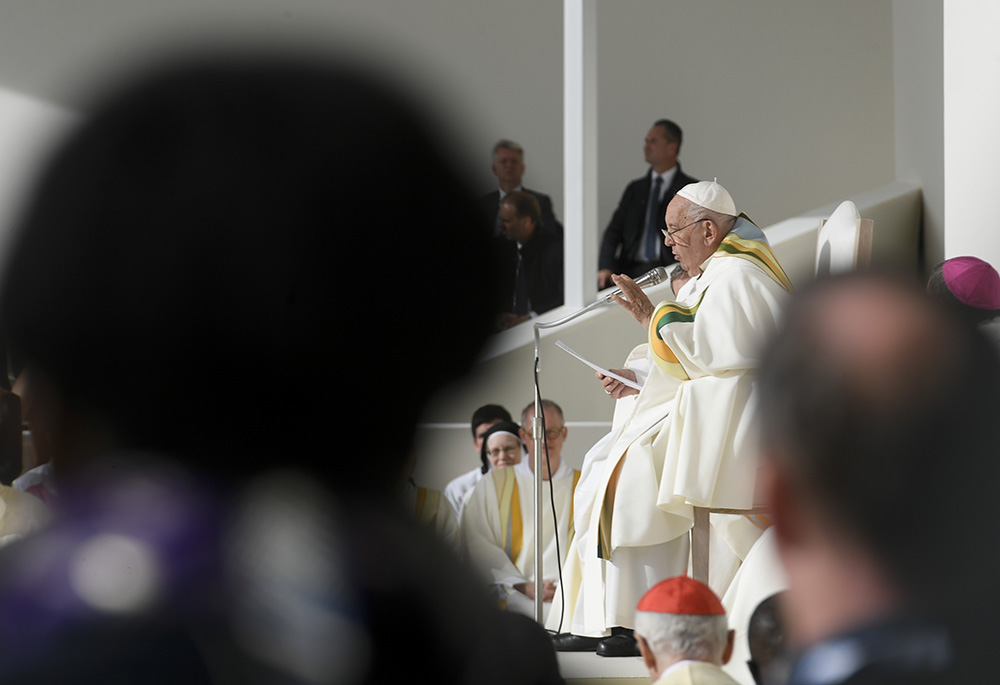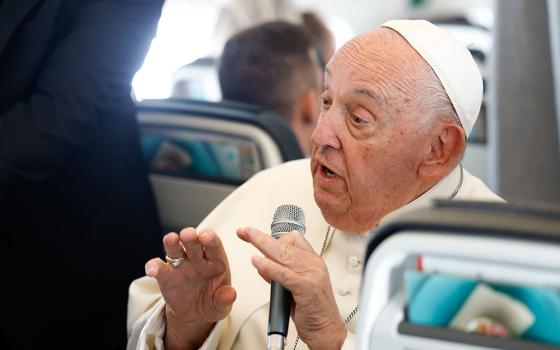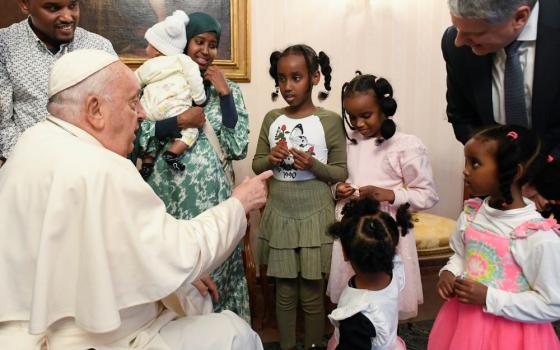
Pope Francis answers a question from a journalist aboard his flight back to Rome Sept. 29, after visiting Luxembourg and Belgium during his 46th international trip. (CNS/Lola Gomez)
Pope Francis on Sept. 29 strongly condemned the disproportionate use of military force for the purposes of retaliation and said that any nation that violates this principle is "immoral."
"The defense must always be proportionate to the attack," said Francis when asked about the Sept. 27 assassination of Hezbollah leader Hassan Nasrallah by Israeli forces in Lebanon that has put the region on the brink of an all-out war.
While Francis said he did not know the specifics of the situation, he put his palm into his face as a reporter recounted the escalating events in the Middle East and warned against "dominating tendencies."
The pope recounted that he phones the Catholic parish in Gaza on a daily basis and they inform him of the latest developments, including the "cruelty" taking place.
"All war is immoral," said the pope, "but disproportionate retaliation is immoral."
The pope's remarks came during a brief 20-minute in-flight press conference en route back to Rome following a Sept. 26-29 journey to Luxembourg and Belgium, a trip where the pontiff was repeatedly rebuked for the Catholic Church's handling of clergy abuse and its positions on women.
Just moments after Francis' Sept. 28 visit to the Université Catholique de Louvain, the storied Catholic institution sent out a press release expressing "incomprehension and disapproval" of the pope's rhetoric on women.
The statement decried the pope's description of women as a "fertile welcome" as "deterministic and reductive."
Advertisement
On the plane, however, the pope rejected criticism that his position was conservative and hit back by saying the university's response was prefabricated and sent the moment he finished speaking.
"In the life of the church, women are superior because the church is woman," said Francis, while doubling-down on his long-held position that the "church is woman, because the church is the spouse of Jesus."
"To masculinize the church, to masculinize women, is not human, it’s not Christian," said the pope.
"An exaggerated feminism, which means that women are chauvinists, does not work," he continued. "What works is the feminine church being greater than the priestly ministry. And this is not often considered."
Francis was also asked on the plane about his praise of Belgium's late King Baudouin, who, in 1990, abdicated the throne for a day in order to avoid signing a parliament bill that legalized abortion in the country.
"You want a politician that wears pants," the pope told reporters, who again repeated his belief that he believes abortion to be the equivalent of hiring a "hit man," and he believes the matter is not up for debate.
On Sept. 28, the pope made an unscheduled stop to pray at Baudouin's tomb, and a statement from the Holy See press office said he hoped that today's Belgians would look to his example at a time when new "criminal laws" are under consideration.
At present, abortion is permissible until the 12th week of pregnancy, though some lawmakers are currently pushing to expand the legal window from 12 to 18 weeks.

Pope Francis gives his homily during Mass in Brussels' open-air King Baudouin Stadium Sept. 29, his last day in Belgium. (CNS/Vatican Media)
Prior to leaving the country, the pope presided over a Mass that drew a crowd of some 40,000 Catholics, where — speaking off the cuff — Francis lamented the recent "scandals" that have plagued the Belgian church.
"There is no room for abuse in the church," the pope declared. "I ask everyone, don't cover up abuse!"
"Evil must not be hidden, it must be in the open … so that the abuser is judged, whether they be a layman or a laywoman, a priest or a bishop, that they be judged. The word of God is clear," said Francis.
The pope's remarks were met with sustained applause by a crowd that included Belgium's royal family, including King Philippe who on Sept. 27 told the pope that it had taken "far too long" for the cries of victims to be heard and acknowledged by the church.
On Sept. 27, as he concluded his first full day in the country, the pope held a private meeting with 17 abuse survivors and, according to a Vatican statement, "expressed shame for what they suffered as children."
En route back to the Vatican, Francis recalled this meeting and insisted that he will study the requests made by the victims, which among other things, included to help concrete compensation plans that the pope said are currently too small.
"We have the responsibility to help the victims," he said. "We must go forward."







